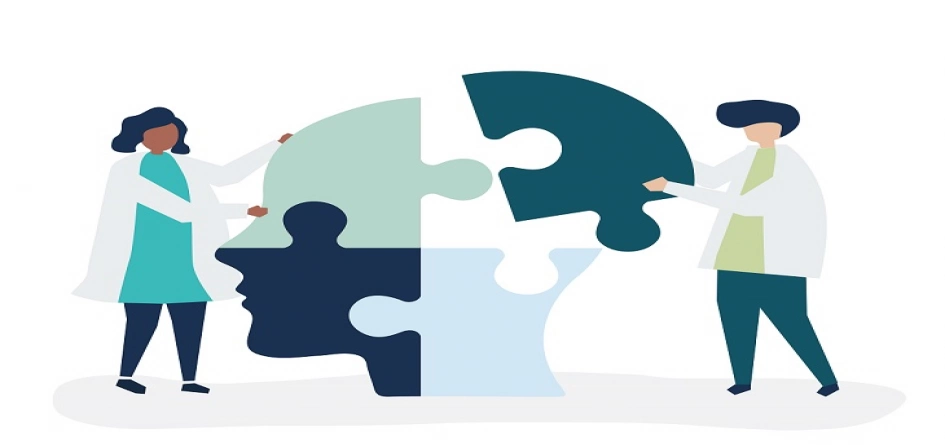

“The statistics on sanity are that one out of every four Americans is suffering from some form of mental illness. Think of your three best friends. If they're okay, then it's you,” says American feminist writer Rita Mae Brown.
While a citation by the Psychiatric Times revealed that $16 trillion will be spent on mental health globally by 2030, the global economy spent approximately $2.5 trillion per year on mental health in 2010, according to a medical journal, The Lancet.
Next pandemic after Covid-19?
Mental health was often considered a taboo to be spoken out loud. However, in today’s time and stressful scenarios, mental health is something that hits the majority of people in some way or the other. Speaking about it is now becoming increasingly important, which is why counselling as a career is also picking up.
It’s often mentioned that the next pandemic after Covid-19 will be a mental health crisis. The topic of mental health is often brushed under the carpet. It took a global pandemic for a few to open up about mental health. A very well-known example of this is tennis player Naomi Osaka, who withdrew from the French open to cater to her mental health.
People are caged inside their homes for over a year, some trying to overcome the loss of loved ones, others unemployed and struggling to find a source of income, working longer shifts, stressed, incurring salary cuts and going through digital fatigue as this has become their only source of communication. Kids are the most hit as they are being deprived of enjoying their childhood with outdoor activities and stuck with digital schools. The silver lining here is the way people stood by each other and helped out in any way they could. The empathy that aroused with the isolation has been phenomenal and no pandemic distress can rule this out.
An editorial by senior Norwegian politician Gro Harlem Brundtland claimed that five out of 10 reasons for disability worldwide are mental health related. There is a huge need for organisations to cater to the needs of their employees by learning how to create mental health programs. We are all in pursuit of navigating through uncertain times.
Your business can recover after the huge blow by Covid-19. Want to know how? Read here.
Individuals and organisations have realised the importance of mental health programs and they have taken baby steps towards incorporating them. Social media, which was often seen as an aggravator to poor mental health, did rise to the occasion and become a medium to reach out for help and a positive space to share one’s experience. However, its negative effects too cannot be ignored.
Read on to know about the brands that won hearts during the pandemic here
Here are some shining examples of others incorporating programs that help with mental health for their staff:
EY started an ‘R U Okay’ campaign in 2016, to encourage discussions around mental health and provide services to their employees. It aims to create an environment where people can speak up and get help when needed. During the Covid crisis, they launched We Care, a mental health program and substance use awareness campaign, to empower employees to support each other and 24/7 mental healthcare services.
Starbucks offers employees, who work 20 hours or more per week and their families 20 free counseling sessions a year by Lyra Health. Ron Crawford, VP, Global benefits said this will impact more than 222,000 US workers and their families.
Target is providing free online resources to support mental, emotional and physical health for their employees. They will have access to a year-long free access to Daylight, a website and app that helps users navigate stress and worry and Sleepio, an app that provides self-help tools to improve sleep.
PwC provides well-being coaching 24/7, to any employee who seeks out help. They have created an online community for people to connect with each other and discuss their problems. They also have six free therapy sessions.
TransferWise, along with providing mental health professions to their employees, are also offering 50% off on Headspace, an app for mindfulness and meditation for stress and sleep. They also offer Zoom events like yoga, salsa dance, meditation and book clubs.
Every organisation is putting in some effort to incorporate mental health benefits to their employees. Some other ways you can help your staff are:
Flexible working hours
Training leaders on being more emotionally intelligent
Stress management workshops
Providing a mental health positive environment, wherein people can talk about it without any stigma attached to it
We at Transfunnel constantly try to help employees by engaging with them on a one-on-one level. Every Friday, we engage in virtual games to lighten up the mood and include a game called Blue Whale and Monkey Business; where Blue Whale is someone you appreciate for going beyond their scope of work to help you. Monkey Business is admitting to a mistake you have committed. This allows employees to be frank without any inhibitions.
The global mental health crisis is unavoidable but taking small steps and helping people around us by being more empathetic is essential. Spotting unusual behavior in people and talking to them without any judgment goes a long way in letting them know that they are heard. However, in some cases, it is important that you guide them towards seeking professional help and avoid giving suggestions that may end up doing more damage to their mental health. Most importantly, taking care of your mental health is vital and it is not selfish to take time off if you need it and seek out help when needed.